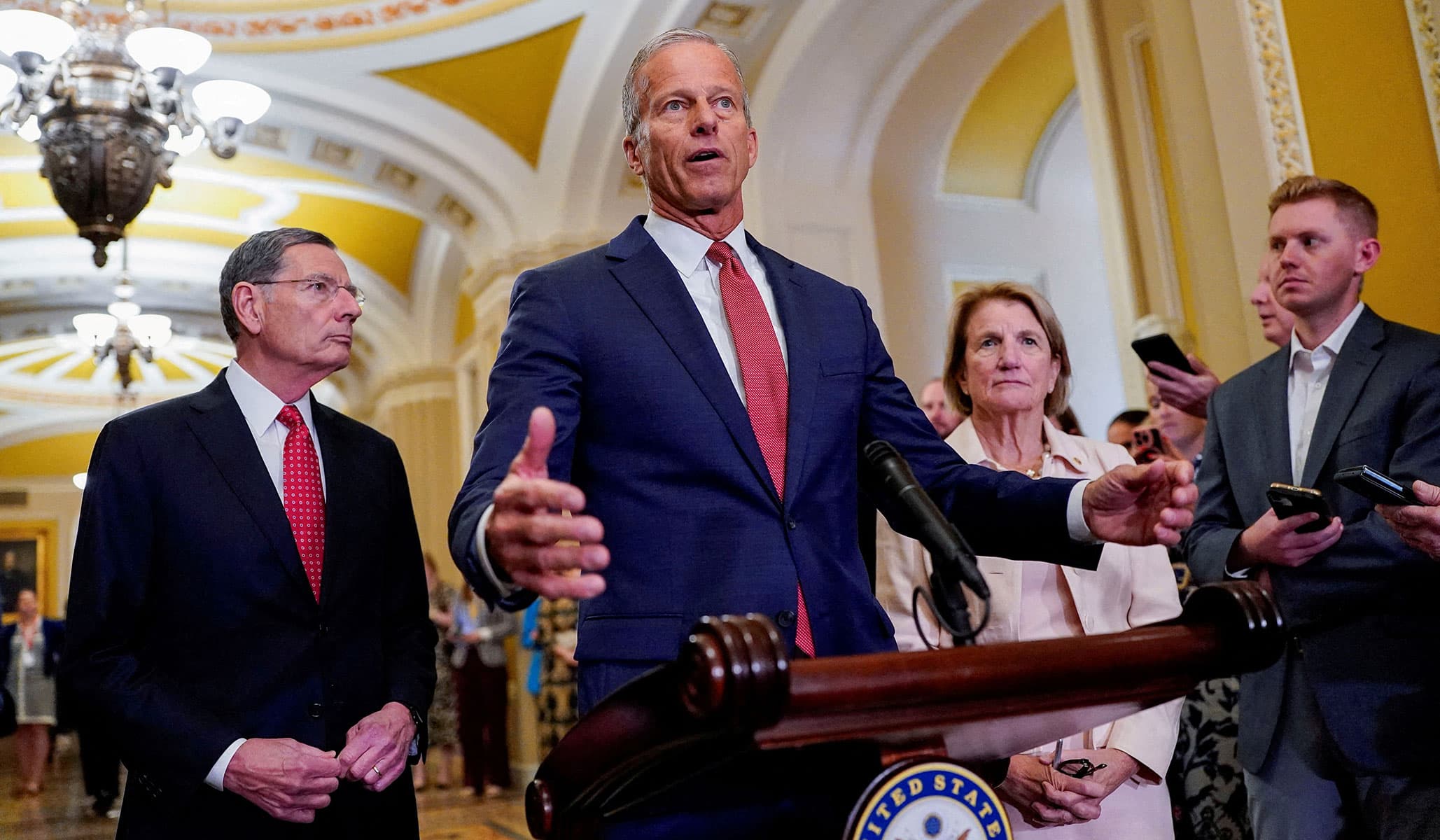Senate GOP plan slashes Medicaid deeper than House bill

Senate Republicans have released a sweeping 549-page proposal that would make deeper cuts to Medicaid than the House-passed version of the GOP’s marquee legislative package, intensifying internal divisions as lawmakers race to meet a July 4 deadline.
The Senate Finance Committee’s draft would phase out clean-energy tax credits more slowly than the House bill, offsetting those delays with sharper Medicaid reductions. Unlike the House plan, which applied work requirements to childless adults, the Senate bill would extend them to parents of teenagers and tighten eligibility checks, including immigration verification—changes expected to increase the number of Americans losing coverage. The Congressional Budget Office estimated the House version would leave 11 million more Americans uninsured by 2034.
While Senate leaders tout the bill’s extensions of Trump-era tax cuts and new deductions for older adults and businesses, the changes have drawn criticism from both House Republicans and Democrats. House moderates object to the Senate’s lower cap on state and local tax (SALT) deductions, while hardline conservatives oppose the preservation of some clean-energy incentives.
The bill would raise the debt ceiling by $5 trillion—$1 trillion more than the House version—and retain controversial provisions such as Planned Parenthood funding restrictions and reduced assistance for dual Medicare-Medicaid enrollees.
The Senate parliamentarian this week struck several provisions from the reconciliation bill, including a proposed defunding of the Consumer Financial Protection Bureau, stricter SNAP rules, and a judicial reform aimed at shielding the Trump administration from court penalties. The rulings leave the bill’s core tax and Medicaid changes intact but reduce overall projected savings by more than $9 billion.
Public opinion remains skeptical. A new KFF poll found 67% of Americans oppose the bill when told of its impact on Medicaid. Support among Republicans drops further when consequences are specified.
Despite mounting pushback, Senate Republicans aim to pass the package next week. If approved, the two chambers would still need to reconcile key differences—especially over Medicaid and climate provisions—before sending it to President Trump’s desk.
